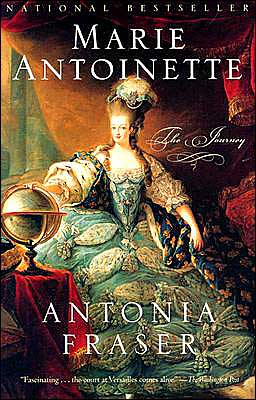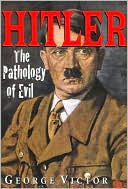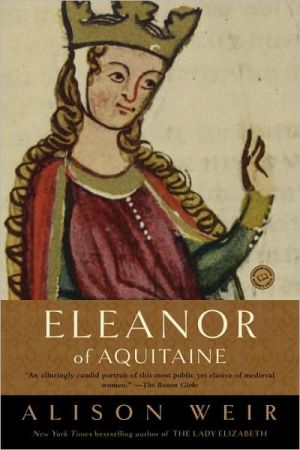Catherine de Medici: Renaissance Queen of France
Poisoner, despot, necromancer — the dark legend of Catherine de Medici is centuries old. In this critically hailed biography, Leonie Frieda reclaims the story of this unjustly maligned queen to reveal a skilled ruler battling extraordinary political and personal odds — from a troubled childhood in Florence to her marriage to Henry, son of King Francis I of France; from her transformation of French culture to her fight to protect her throne and her sons' birthright. Based on thousands of...
Search in google:
Poisoner, despot, necromancer — the dark legend of Catherine de Medici is centuries old. In this critically hailed biography, Leonie Frieda reclaims the story of this unjustly maligned queen to reveal a skilled ruler battling extraordinary political and personal odds — from a troubled childhood in Florence to her marriage to Henry, son of King Francis I of France; from her transformation of French culture to her fight to protect her throne and her sons' birthright. Based on thousands of private letters, it is a remarkable account of one of the most influential women ever to wear a crown. Publishers Weekly In 1533, 14-year-old Catherine de Medici arrived in France to marry the future king Henri II; over the next 16 years, she endured the dominance of Henri's mistress, Diane de Poitiers, and the disdain of courtiers for her family's merchant background. The sudden death of Henri launched Catherine into three decades as regent and chief adviser to three sons who ruled in succession. Frieda navigates the twists and turns of the French royal court and family with particular attention to the formation of Catherine's political skills. From her lonely childhood as a tool in the diplomacy of her powerful uncles to her carefully cultivated relationship with her father-in-law and maneuvering through shifting family alliances, the queen learned self-possession, deception and strategy. While Catherine has been maligned for her role in France's wars of religion and in particular the St. Bartholomew's Day Massacre, Frieda argues that Catherine attempted to reach compromise in the religious strife of her adopted country. While trying to flesh out Catherine, Frieda occasionally paints others with a too-broad brush. At times, her descriptions of Catherine's actions as emotionally or politically motivated seem arbitrary. But Frieda's portrait of Catherine is multifaceted, and her presentation of the complicated narrative of five tumultuous reigns is compelling. (Jan.) Copyright 2004 Reed Business Information.
\ From Barnes & NobleFor most of us, Catherine de Medici (1519-89) is a name without honor. Historians, novelists and dramatists have portrayed the Florentine royal consort as a poisoner, a political tyrant, and even as a secret Satanist. The truth, according to biographer Leonie Frieda, is far more complex and far more fascinating. Without whitewashing the much-maligned bride of Henry IV, Frieda recaptures her humanity, presenting this pragmatic strategist within the context of her tumultuous and diabolical times.\ \ \ \ \ Washington Times""Riveting and dramatic . . . there is no mistaking the abiding pleasure of this book."\ \ \ Wall Street Journal"Vivid and entertaining...a convincing human portrait against the backdrop of a brutal age."\ \ \ \ \ Booklist"A carefully nuanced portrait…[Leonie Frieda] achieves remarkable balance as she freshly interprets Catherine…a revealing biography."\ \ \ \ \ Publishers WeeklyIn 1533, 14-year-old Catherine de Medici arrived in France to marry the future king Henri II; over the next 16 years, she endured the dominance of Henri's mistress, Diane de Poitiers, and the disdain of courtiers for her family's merchant background. The sudden death of Henri launched Catherine into three decades as regent and chief adviser to three sons who ruled in succession. Frieda navigates the twists and turns of the French royal court and family with particular attention to the formation of Catherine's political skills. From her lonely childhood as a tool in the diplomacy of her powerful uncles to her carefully cultivated relationship with her father-in-law and maneuvering through shifting family alliances, the queen learned self-possession, deception and strategy. While Catherine has been maligned for her role in France's wars of religion and in particular the St. Bartholomew's Day Massacre, Frieda argues that Catherine attempted to reach compromise in the religious strife of her adopted country. While trying to flesh out Catherine, Frieda occasionally paints others with a too-broad brush. At times, her descriptions of Catherine's actions as emotionally or politically motivated seem arbitrary. But Frieda's portrait of Catherine is multifaceted, and her presentation of the complicated narrative of five tumultuous reigns is compelling. (Jan.) Copyright 2004 Reed Business Information.\ \ \ \ \ Kirkus ReviewsScholarly but lively biography of the Italian-born queen who ruled France as regent during 30 years of bitter religious warfare. Catherine (1519-89) was only 14 when she married the French Dauphin (crowned Henri II in 1547), but she'd already been very nearly murdered by opponents of her cousin Pope Clement VII. Being scorned by the French nobility as an Italian upstart merely sharpened the political skills of a young woman who wasn't pretty but had learned how to be charming-and how to keep her thoughts to herself. Yet Catherine's centuries-old reputation as a murderous schemer is undeserved, argues first-time biographer Frieda: ruthless, yes, but no more brutal than anyone else embroiled in the struggle between Catholics and Protestants that racked 16th-century France and threatened to destroy the Valois dynasty. Henri's untimely death in 1459 left Catherine with a ten-year-old son on the throne; two more underage sons would inherit the crown while she checked the ambitions of the powerful Guise and Bourbon families. Yes, Frieda acknowledges, Catherine did plan the 1572 assassination of leading French Huguenots that has tarnished her name ever since, but the St. Bartholomew's Day Massacre was "intended as a relatively small-scale surgical operation," though the passions of the Catholic masses turned it into a full-scale bloodbath. In fact, Frieda demonstrates, Catherine was a religious moderate who repeatedly offered toleration to the Huguenots until she became convinced they weren't just heretics but traitors. Seven months after Catherine's death, fellow pragmatist Henri de Bourbon abjured Protestantism and ascended the throne and, with the 1598 Edict of Nantes, ended the nation'sfratricidal conflict. If any of her sons had been that adept, Catherine would be remembered as a patron of the arts, enthusiastic huntswoman, and thrower of great parties instead of "the Black Queen" of St. Bartholomew's Day. Persuasive rehabilitation of Catherine, not as a nice woman, but as a shrewd leader who did what she had to. Agent: Georgina Capel\ \








